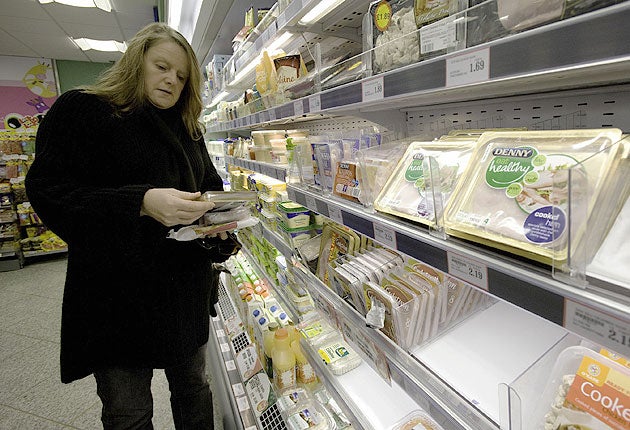Beef farms contaminated with toxic feed

Your support helps us to tell the story
From reproductive rights to climate change to Big Tech, The Independent is on the ground when the story is developing. Whether it's investigating the financials of Elon Musk's pro-Trump PAC or producing our latest documentary, 'The A Word', which shines a light on the American women fighting for reproductive rights, we know how important it is to parse out the facts from the messaging.
At such a critical moment in US history, we need reporters on the ground. Your donation allows us to keep sending journalists to speak to both sides of the story.
The Independent is trusted by Americans across the entire political spectrum. And unlike many other quality news outlets, we choose not to lock Americans out of our reporting and analysis with paywalls. We believe quality journalism should be available to everyone, paid for by those who can afford it.
Your support makes all the difference.Three Irish beef farms have been contaminated with a toxic substance which devastated the country's pig meat industry, food safety chiefs confirmed today.
But Agriculture Minister Brendan Smith insisted there was no public health concerns after tests were carried out on 11 herds believed to have been given an infected feed.
Three farms breached safe limits while a further eight have been given the all-clear.
The levels of dioxins found in the beef were two to three times above safe limits compared to 200 times for the pig meat which has devastated the pork sector.
Mr Smith said: "There is no public health concern.
"The results show that eight out of 11 herds are clear and three are above the proposed legislative limits.
"This would make the samples technically non-compliant but not at a level that would pose any public health concern."
The Department of Agriculture also stressed the relatively low numbers of beef slaughtered in the last three months that could have been infected by harmful dioxins.
Since 1 September only 3,000 cattle have been processed out of the yearly total of 1.5 million - 0.2 per cent of the annual figure.
Officials said 45 cattle herds had been placed under restriction, 34 were undergoing tests and the eight herds given the all-clear would go back into the food chain.
Join our commenting forum
Join thought-provoking conversations, follow other Independent readers and see their replies
Comments